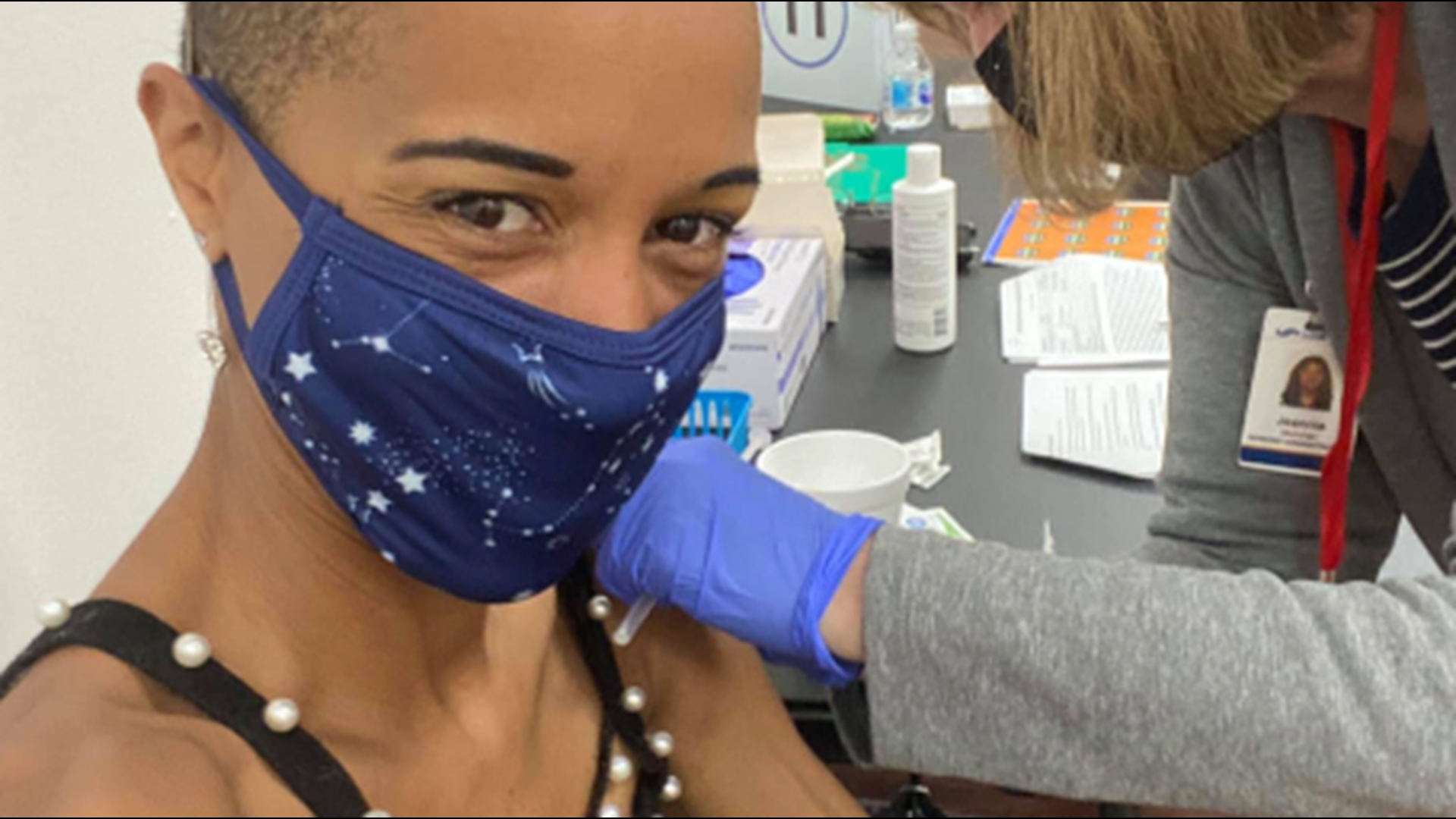ST. LOUIS — When Max Harris got her shot, she recorded the experience, but it was over before she realized it.
"That's it?" she asked a nurse before turning to her phone and letting out a short squeal of excitement.
"You know it's been a rough year for all of us so when we got the appointment it was just elation," Harris said.
Harris and her boyfriend now have their first doses, and a new study shows more people are willing to follow in Harris's footsteps.
"It's still a shot... let's be real, but I'll do anything to see my parents and my grandma, especially my grandma," she said.
"I think the key thing is that people are becoming more comfortable with the idea of getting vaccinated people are seeing these numbers shift, and I think that's no reason for optimism," Kaiser Family Foundation's Lunna Lopes said.
Lopes, a survey analyst for KFF's Public Opinion and Survey Research team, says they've found more people are moving from the "wait and see" camp into vaccine-ready, often swayed by the scientific results.
"About two-thirds of them said hearing that the vaccine is 100% effective at preventing hospitalization and death made them more likely to get the vaccine," she said.
The biggest change: 55% of Black adults are — or plan to be — vaccinated, up 14 points from February.
"When we look at African-American communities, Black and brown communities, and the history of medical abuse in our country, it is totally understandable, but it cannot continue to be used as an excuse for not servicing those communities,' Heather Fleming said.
Fleming started the Missouri Vaccine Equity Group on Facebook to address accessibility because she felt hesitancy rates were often used as an excuse to overlook the population hit first -- and often hardest -- by the pandemic.
"The first thing that people would say was, 'well they don't want it. It's hesitancy.' And I kept saying 'you know, no.' I think that is being used as an excuse to not make the effort that we need to be making any African-American community," Fleming said.
RELATED: As Missouri marks 1 year with the coronavirus, vaccine trends follow previous racial disparities
Fleming's group is trying to remove all barriers to vaccine access, by correcting misinformation, providing information about vaccine opportunities, and arranging transportation for those who need it.
And Harris hopes her story may change minds too.
KFF reports Republicans and white evangelical Christians were the most likely to say they will “definitely not” get vaccinated.

